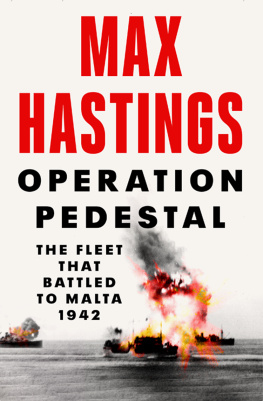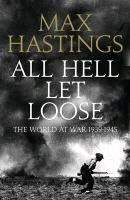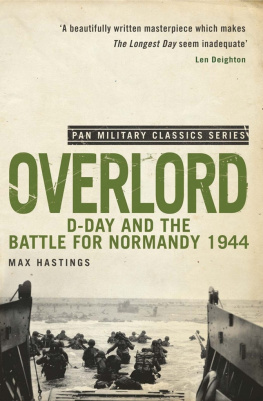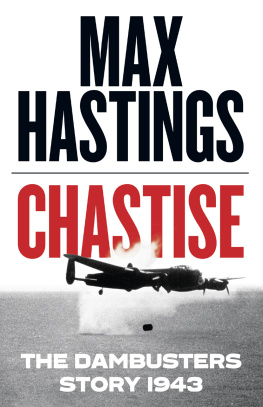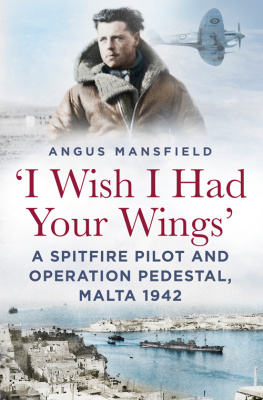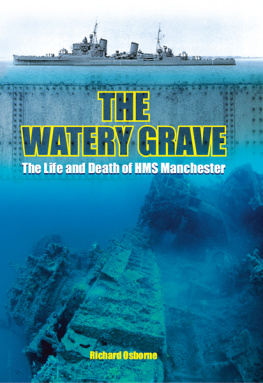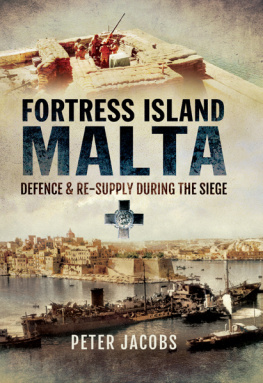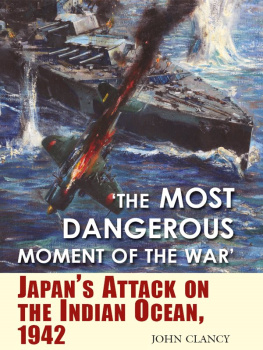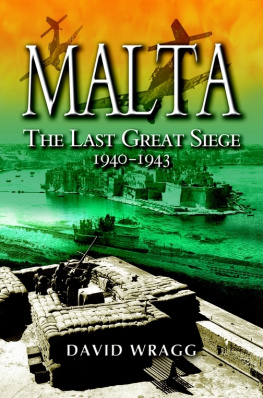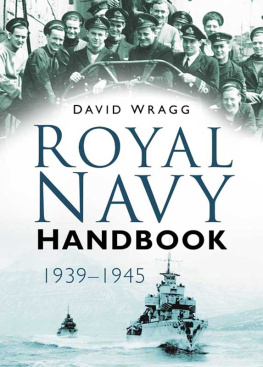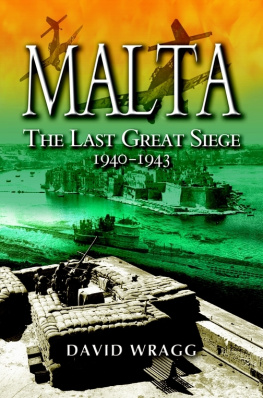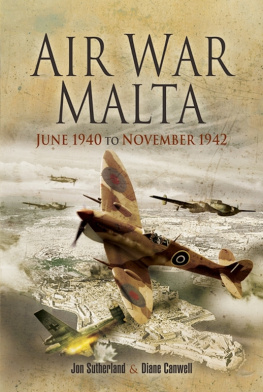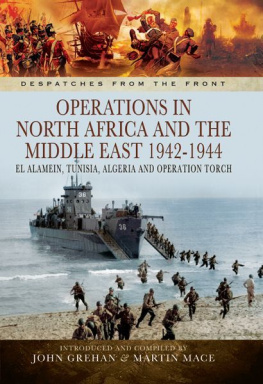Max Hastings - Operation Pedestal: The Fleet That Battled to Malta, 1942
Here you can read online Max Hastings - Operation Pedestal: The Fleet That Battled to Malta, 1942 full text of the book (entire story) in english for free. Download pdf and epub, get meaning, cover and reviews about this ebook. City: London, year: 2021, publisher: William Collins, genre: History. Description of the work, (preface) as well as reviews are available. Best literature library LitArk.com created for fans of good reading and offers a wide selection of genres:
Romance novel
Science fiction
Adventure
Detective
Science
History
Home and family
Prose
Art
Politics
Computer
Non-fiction
Religion
Business
Children
Humor
Choose a favorite category and find really read worthwhile books. Enjoy immersion in the world of imagination, feel the emotions of the characters or learn something new for yourself, make an fascinating discovery.
- Book:Operation Pedestal: The Fleet That Battled to Malta, 1942
- Author:
- Publisher:William Collins
- Genre:
- Year:2021
- City:London
- Rating:3 / 5
- Favourites:Add to favourites
- Your mark:
Operation Pedestal: The Fleet That Battled to Malta, 1942: summary, description and annotation
We offer to read an annotation, description, summary or preface (depends on what the author of the book "Operation Pedestal: The Fleet That Battled to Malta, 1942" wrote himself). If you haven't found the necessary information about the book — write in the comments, we will try to find it.
Renowned historian Max Hastings recreates one of the most thrilling events of World War II: Operation Pedestal, the British action to save its troops from starvation on Maltaan action-packed tale of courage, fortitude, loss, and triumph against all odds.
In 1940, Hitler had two choices when it came to the Mediterranean region: stay out, or commit sufficient forces to expel the British from the Middle East. Against his generals advice, the Fuhrer committed a major strategic blunder. He ordered the Wehrmacht to seize Crete, allowing the longtime British bastion of Malta to remain in Allied hands. Over the fall of 1941, the Royal Navy and RAF, aided by British intelligence, used the island to launch a punishing campaign against the Germans, sinking more than 75 percent of their supply ships destined for North Africa.
But by spring 1942, the British lost their advantage. In April and May, the Luftwaffe dropped more bombs on Malta than London received in the blitz. A succession of British attempts to supply and reinforce the island by convoy during the spring and summer of 1942 failed. British submarines and surface warships were withdrawn, and the remaining forces were on the brink of starvation.
Operation Pedestal chronicles the ensuing British mission to save those troops. Over twelve days in August, German and Italian forces faced off against British air and naval fleets in one of the fiercest battles of the war, while ships packed with supplies were painstakingly divided and dispersed. In the end only a handful of the Allied ships made it, most important among them the SS Ohio, carrying the much-needed fuel to the men on Malta.
As Hastings makes clear, while the Germans claimed victory, it was the British who ultimately prevailed, for Malta remained a crucial asset that helped lead to the Nazis eventual defeat. While the Royal Navy never again attempted an operation on such scale, Hasting argues that without that August convoy the British on Malta would not have survived. In the cruel accountancy of war, the price was worth paying.
Max Hastings: author's other books
Who wrote Operation Pedestal: The Fleet That Battled to Malta, 1942? Find out the surname, the name of the author of the book and a list of all author's works by series.

